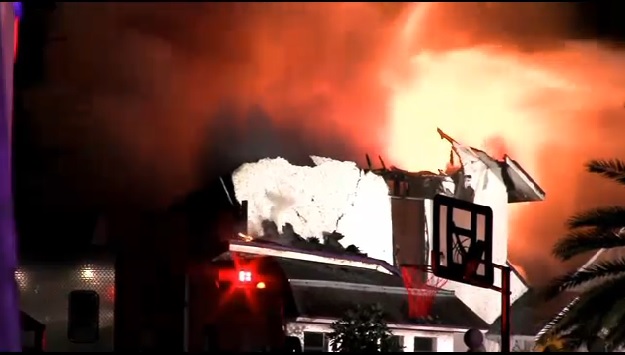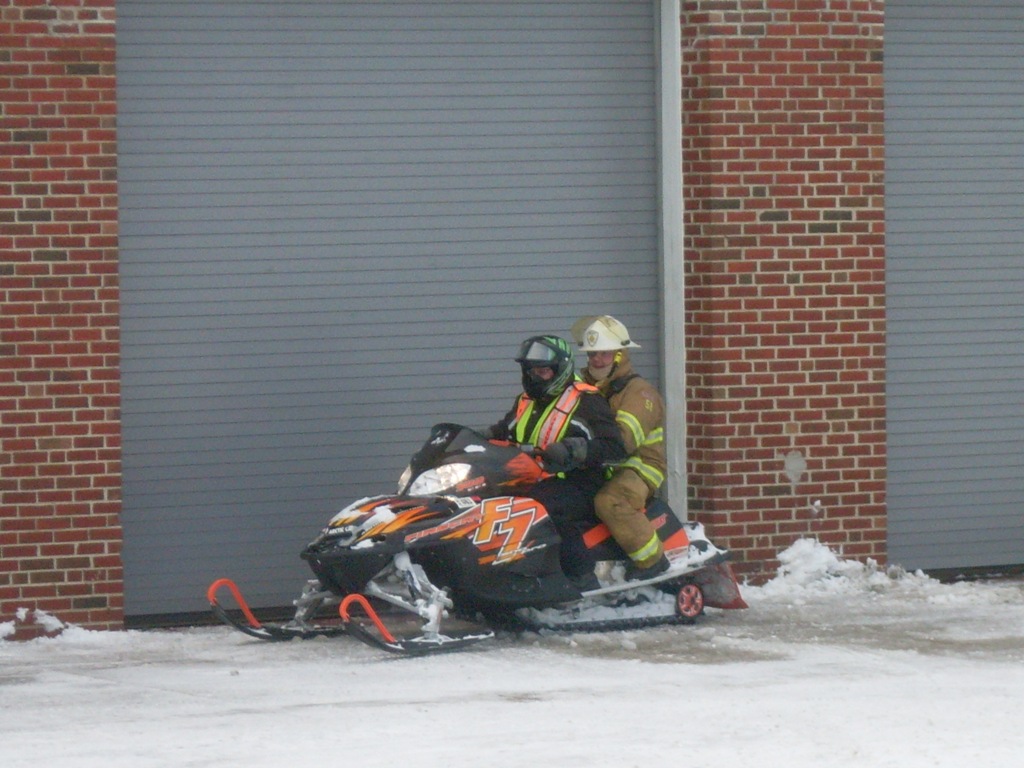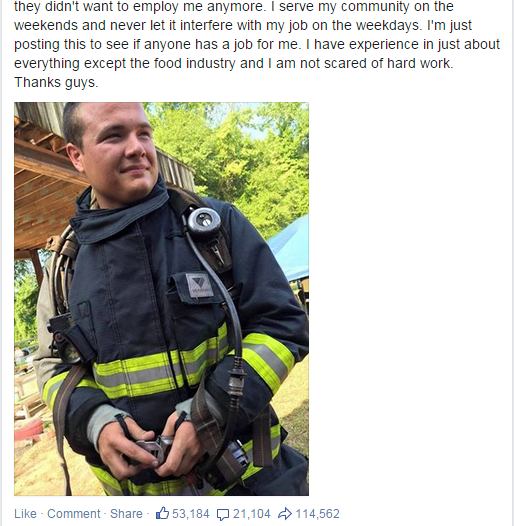Lesson from Weston: Stuff happens. Delaying addressing it with the press & public doesn't make it any better or go away faster.
Above is the video the citizens presented to the council and the fire chief.
Mike Legeros at Raleigh/Wake Firefighting Blog on the Weston fire
Previous coverage of this story here & here
Let me say from the outset of this critique (or, if you prefer, Dave's Monday morning quarterbacking), what I saw in news coverage (and that is my only source of info for details on this story), gives me a great deal of respect for Chief Lynn Johnson of the West Platte Fire District in Missouri. The chief had a couple dozen angry citizens and a gaggle of TV reporters demanding answers at a City Council meeting a week after a July 4th fire where a business owner died. The main allegation by the citizens is that it took 14 minutes to put water on the fire and they have video to prove their point.
Chief Johnson didn't run or hide and appeared to keep her cool at the Monday night gathering. That's not always an easy thing to do when your department is under attack. In addition, the chief admitted to a reporter there was a water problem and promised to investigate. I have seen situations like this handled much, much worse by even big city chiefs (not that they necessarily have a lock on doing things correctly).
That said, I think this sticky situation could have been handled in a manner that would have been much better for the chief, the department, the political leaders and, most important, the citizens. My goal here is not to blast anyone, but use this incident as a reminder that extinguishing the type of fires that spread raw emotion through a community, can be almost as important as putting out the ones that require you to place the wet stuff on the red stuff. It is crucial for the well being of your department's reputation that you have pre-plans and SOPs/SOGs for both type of fires.
As I have long advocated, the guiding principle behind such planning is to get the facts out, get them right and get the issue behind you as rapidly as possible so you can work on rebuilding your image in the community.
West Platte Chief Lynn Johnson at Monday's meeting from KSHB-TV.
As we have pointed out before, bad news doesn't get better or smell better with age. By all accounts the chief had enough information to express concern over the loss of life, answer the allegations made by the citizens, acknowledge they were correct in their complaint about a delay in getting water on the fire, correct misinformation about the length of time it took to fix the problem and explain the steps being taken to make sure this doesn't happen again on her watch.
Instead, it is clear to me the very measured response by Chief Johnson to the citizens, via the press, is just delaying the inevitable and letting this story live for another day. What is unclear is if the way it was handled was the choice of Chief Johnson or if she was following the orders of her bosses.
The chief refused to go on camera and apparently did not make a statement in front of the council (if she did, it was not covered in the accounts I viewed). But Chief Johnson did make statements to reporters off-camera:
Lynn Johnson, the Fire Chief, did not feel comfortable talking about the tape on camera until she got a chance to see it. But she did say they did not wait 14 minutes to use water to fight the fire and that they had received conflicting reports about whether or not a person was trapped inside.
The fire chief of the West Platte Fire Protection District now has a copy of the video. She told (reporter Dan) Weinbaum that there was a delay in getting water at the fire scene, but it did not hinder the firefight.
I just can't imagine, a week after the fire, the chief didn't have a pretty good idea what the issue was with getting water. Whether the chief determined it was mechanical or a training problem she should have been able to explain it in more detail (even without the video) by Monday and gotten this behind her.
In other words, cut your losses and do so quickly. It is the same thought process you might use on the fireground. What's burned is burned, I can't change that fact, but I can prevent it from taking out the next building or the block.
Your quick action in a time when reputations are destroyed at the speed of light, thanks to the Internet, is crucial. How deep seated the damage is to your department's image can be directly related to the speed and depth in which you respond when bad news happens.
Consider the image of your department in the digital age as a neighborhood of lightweight constructed homes on a very windy day, with the houses built six feet apart, with no sprinkler systems and no real fire resistive barriers in the outside walls. If you don't get to a room and contents fire in this neighborhood very quickly and put it out you will be chasing the flames from home to home. Failing to decisively and rapidly attack a reputation issue can turn a fire that slightly chars the department's image into a conflagration that wipes out your standing in the community.
Remember, people will often forgive you for your mistakes if you have given them a reason to trust in you. But it makes it much more difficult to earn their forgiveness when they don't feel you have been honest and open and you aren't answering their questions in a timely manner. Just as in the Alameda, California drowning story, this story in Weston, Missouri is ultimately about the public's trust and confidence in their fire department. If they have questions, no matter how wrong-headed they are, you don't look good when those answers aren't provided as soon as the information is known.
In addition, if Chief Johnson did say, as the reporter paraphrased, the delay "did not hinder the firefight", that was probably not a well thought out statement. The fire service telling the public on one hand that every second counts when fire breaks out and then indicating an eight minute delay in getting water did not negatively impact operations doesn't wash. You are not going to win that, especially when there is video of the incident that shows otherwise.
I believe this story would go away a lot faster and the department would look a lot better if the chief had been able to get up at the council meeting and and say something similar to this:
"It was very clear to anyone who saw us in the initial stages of this fire that we had difficulty in getting water at the proper pressure into the hose firefighters first used to attack the flames. For eight minutes we struggled to correct this problem. It was a mechanical (or human) failure. I have taken the following immediate steps to correct this problem as we investigate further … . I will keep our citizens and council informed every step of the way during this investigation.
Each member of this department expresses their sincere sorrow over the loss of life. We can not tell you if the water issue had an impact on the death of the owner of the store. But in many ways that is irrelevant because this water problem just shouldn't have happened and my job as chief is to prevent it from occurring again".
The chief should have also released any known facts about the fire and the problem.
Now, I would ask any of you to tell me what this chief or any other chief or department would lose by making a statement like this and then answering the questions of the citizens and the press?
With such a statement you have responded to the concerns of the people you serve in a timely manner, with facts, transparency and compassion. I believe it would buy you a world of good in a bad situation. What would be the downside? Why do so many leaders avoid doing this?
Stuff happens. Deal with it and move on. Don't prolong your agony or theirs.







